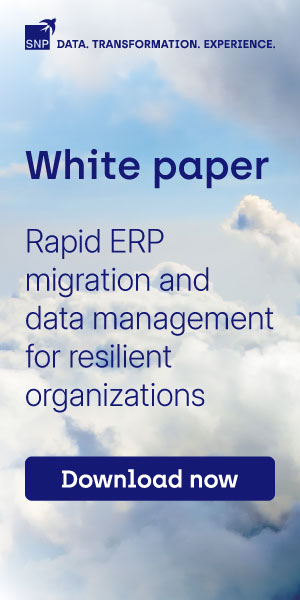The article discusses how digital technology is transforming the UK public sector by enhancing service efficiency and delivery despite significant financial constraints, highlighting innovative solutions and the need for digital skills development among public sector employees.
Digital Transformation in the UK Public Sector: Innovation Amidst Austerity
In recent years, digital technology has emerged as a pivotal force reshaping public sector services in the UK. This transformation, driven by necessity and opportunity, is redefining how councils operate and deliver services. However, this journey is fraught with challenges, particularly the pressing need to achieve more with less. Financial constraints are a significant concern for councils nationwide, pushing them to innovate and enhance efficiency without additional funding. This blog delves into how digital technology is revolutionising the UK public sector amidst these constraints, highlighting key initiatives and their impact.
The Digital Shift in Public Sector Services
Digital technology is not merely a tool but a catalyst for profound change in public sector services. From streamlining administrative processes to enhancing citizen engagement, the potential benefits are immense. For instance, the adoption of digital platforms has significantly improved service delivery speed and accuracy. A report by the Local Government Association (LGA) highlights that digital services can process tasks up to 90% faster than traditional methods, leading to substantial time and cost savings.
One notable example is the implementation of cloud-based solutions. These platforms offer scalable, flexible, and cost-effective alternatives to traditional IT infrastructure. According to a study by Deloitte, 88% of UK councils have adopted some form of cloud technology, resulting in improved data management and reduced operational costs.
Financial Constraints and the Drive for Efficiency
Despite the clear advantages of digital transformation, financial constraints pose a significant challenge. The austerity measures introduced in the wake of the 2008 financial crisis have led to substantial budget cuts for local councils. Between 2010 and 2020, funding for local authorities was reduced by nearly 50%, forcing councils to reconsider their spending strategies.
In this context, the mantra of “doing more with less” has become increasingly relevant. Councils are under immense pressure to maintain, if not enhance, service quality while operating on shrinking budgets. This scenario has accelerated the adoption of digital technologies as councils strive to optimise their resources. For example, the London Borough of Hackney implemented a comprehensive digital strategy that included the digitisation of its housing services. This initiative led to a 25% reduction in administrative costs and improved service delivery times.
Innovative Solutions and Their Impact
Amidst financial constraints, innovation has become the cornerstone of public sector transformation. Councils are leveraging digital tools not only to streamline operations but also to foster greater transparency and accountability. One such innovation is the use of data analytics to inform decision-making. By analysing vast amounts of data, councils can identify patterns, predict outcomes, and allocate resources more effectively.
The Greater Manchester Combined Authority (GMCA) is a prime example of this approach. By utilising data analytics, GMCA has improved its public health initiatives, leading to better-targeted interventions and improved health outcomes for residents. Similarly, the use of artificial intelligence (AI) in customer service, such as chatbots, has enhanced citizen engagement by providing instant responses to queries and reducing the workload on council staff.
Overcoming Barriers to Digital Adoption
While the benefits of digital transformation are clear, several barriers hinder its widespread adoption. One major hurdle is the digital skills gap within the public sector workforce. A report by the Institute for Government found that 60% of public sector employees lack the necessary digital skills, which can impede the effective implementation of new technologies.
To address this, councils are investing in digital training programmes to upskill their workforce. The Digital Academy, launched by the Government Digital Service (GDS), offers various courses aimed at enhancing digital competencies among public sector employees. Additionally, partnerships with private sector tech firms are helping councils to bridge the skills gap and accelerate digital initiatives.
Embracing Digital Innovation for a Resilient Public Sector
Digital technology is undeniably transforming the UK public sector, offering a pathway to enhanced efficiency and improved service delivery amidst financial constraints. The journey is challenging, requiring councils to innovate and adapt continuously. By embracing digital tools and fostering a culture of continuous improvement, the public sector can overcome these challenges and deliver better outcomes for citizens.
As councils across the UK navigate this complex landscape, the focus must remain on leveraging digital innovation to create a more responsive, efficient, and resilient public sector. The path forward is not without obstacles, but with strategic planning and investment in digital capabilities, the potential for positive change is vast.






